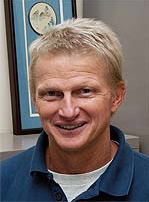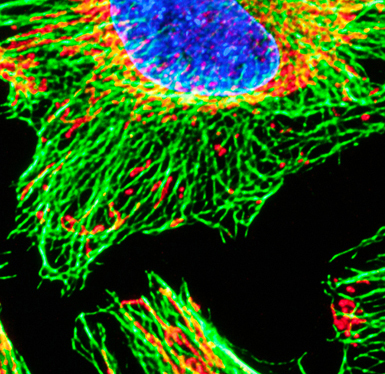Health & Wellness
Health is something we generally expect everyone to want. But what counts as “healthy” changes over time, from place to place, and with developments in scientific knowledge and transformation in social values. Furthermore, within and across societies, people do not always agree about who is responsible for generating health: individuals? doctors? communities? nations? As a consequence of these different ideas about what health is and who is responsible for it, many people do not know how to achieve good health, many do not have access to health care, and communities, industries, and nations may create environments that are bad for health in many ways. In anticipating a range of developments in health and medicine, the rise of new ethical and political problems, and transformations in cultural practice, this grand challenge pathway treats good health and ill health as multi-faceted challenges that require investigation and action at many scales and from many perspectives.
Leadership
Executive Co-Chair, William P. Stewart
 William ("Bill") Stewart is a professor of Recreation, Sport, & Tourism in the College of Applied Health Science. He has served as the director of an undergraduate program in Interdisciplinary Health Sciences (i-Health) since 2009 and was Associate Dean for Academic Affairs in the College of Applied Health Science between 2008 and 2014. Professor Stewart's goals for both teaching and research are to facilitate the development of parks and other environmental settings to improve quality of life and community well-being.
William ("Bill") Stewart is a professor of Recreation, Sport, & Tourism in the College of Applied Health Science. He has served as the director of an undergraduate program in Interdisciplinary Health Sciences (i-Health) since 2009 and was Associate Dean for Academic Affairs in the College of Applied Health Science between 2008 and 2014. Professor Stewart's goals for both teaching and research are to facilitate the development of parks and other environmental settings to improve quality of life and community well-being.
Professor Stewart conducts research associated with park and natural resources development and teaches courses in the university-wide environment program. Bill has been involved with research projects that assess information from park users, community residents, and various other stakeholders.
Advisory Co-Chair, Frances (Ming) Kuo, Natural Resources & Environmental Sciences (ACES)
Advisory Co-Chair, Laura DeThorne, Speech & Hearing Science (Applied Health Sciences)
Advisory Co-Chair, Gene Robinson, Entomology (LAS)
Spring 2016 Grand Challenge Experience Courses (GCXs)
GCL 125 Interdisciplinary Approaches to Life Science (multi-section first-year course)
GCL 125b IALS: IT’S TOXIC!(Life Sciences), Samantha Frost, MW 1-2:20PM
This course will teach students how exposure to chemicals from the environment in everyday life affects health and well-being. The course will examine the ways that endocrine disruptors like phthalates can enter the body, mimic hormones in the body, and thereby generate physiological and behavioral anomalies that cause health problems. As a first-year course structured around the idea of experiential learning, students will undertake reading and discussion amplified by hands-on field trips, in-class projects, investigations about personal lived environments, and group research projects.
GLC 125c IALS: THE MOLECULAR ME (Life Sciences), Jeff Moore, TR 2-3:20PM
This course will give students personal and practical experience investigating root causes of human health and diseases. Topics will be selected to better understand the President’s new initiative on Precision Medicine. Examples will demonstrate the connection between observable traits and human genomic variations. Students will gain experience in visualizing and interpreting the molecular consequences of genomic variation, and be able to relate their findings to the science and technology of personalized medicine.
GCL 125d IALS: EXPERIENTIAL ANATOMY (Life Sciences), Rebecca Nettl-Fiol, MW 3-4:20PM
Students will be engaged in learning about the human body and how it moves, using traditional scientific methods, along with personal explorations in the classroom through guided movement experiences and working with partners. The course takes a holistic approach, delving into various body-mind practices as a lens for learning human anatomy. Quizzes on anatomical structures and movement analysis will be partnered with a personal, experiential research project. The course includes guests from the fields of yoga, physical therapy, and massage therapy, as well as a field trip to the dance neuroscience lab.
GCL 188 Interdisciplinary Approaches to Health and Society (Literature) (multi-section first-year course)
GCL 188a IAHSL: DOCTORS AND PATIENTS (Literature), Stephanie Hilger, TR 3:30-4:50PM
The struggle with disease and the related search for a cure has occupied human consciousness throughout time and remains at the forefront of popular awareness, especially in current debates about healthcare. Through the study of literature and other cultural documents, this course explores the centrality of the doctor-patient relationship. Students will watch television shows (such as Grey’s Anatomy and House) and read short stories and novels with the goal of critically analyzing the communication between doctor and patient, noting positive and negative aspects and providing suggestions for improvement. Students will also create fictional case studies of patients with specific diseases, presenting the “standard of care” depending on the historical and cultural context, and analyze the rhetorical strategies of commercials by pharmaceutical companies.
GCL 188b IAHSL: GLOBAL Epidemics (Literature), Ramón Soto-Crespo, TR 3:00-4:50PM (Second 8-week.)
Ebola, HIV, zombies, and vampires! All share a common lineage in that they've been imagined as viruses that spread around the globe. Looking at popular novels, comic books, documentaries, and films about global epidemics is, thus, a way of thinking about health and wellness as a world phenomenon. As a plus, students will connect their learning on the spread of viral disease worldwide, inside and outside fiction, to an archive of materials assembled by the University Library.
GCL 186 Interdisciplinary Approaches to Health and Society (Social Science) (multi-section first-year course)
GCL 186c IAHSS: SEX ED PANIC! (Social Science), Chantal Nadeau, TR 4-5:20PM
This course introduces the relationships between education, sex, and the culture of panic. Specifically the course addresses sex from legal, cultural, and ethical dimensions. One of the goals of the course is to give students social-scientific tools to analyze and challenge the ways in which public discussions about sexuality elicit emotions such as fear and panic resulting in an array of public and political responses. Working with case studies, students will learn to engage and evaluate the information that circulates about sexuality and its impact on educating informed citizens. Their class materials and activities will enable them to analyze a range of contemporary debates: gender identification, media censorship, sex education and abstinence policies, and college campaigns on sexual assaults such as “It’s on Us.”


